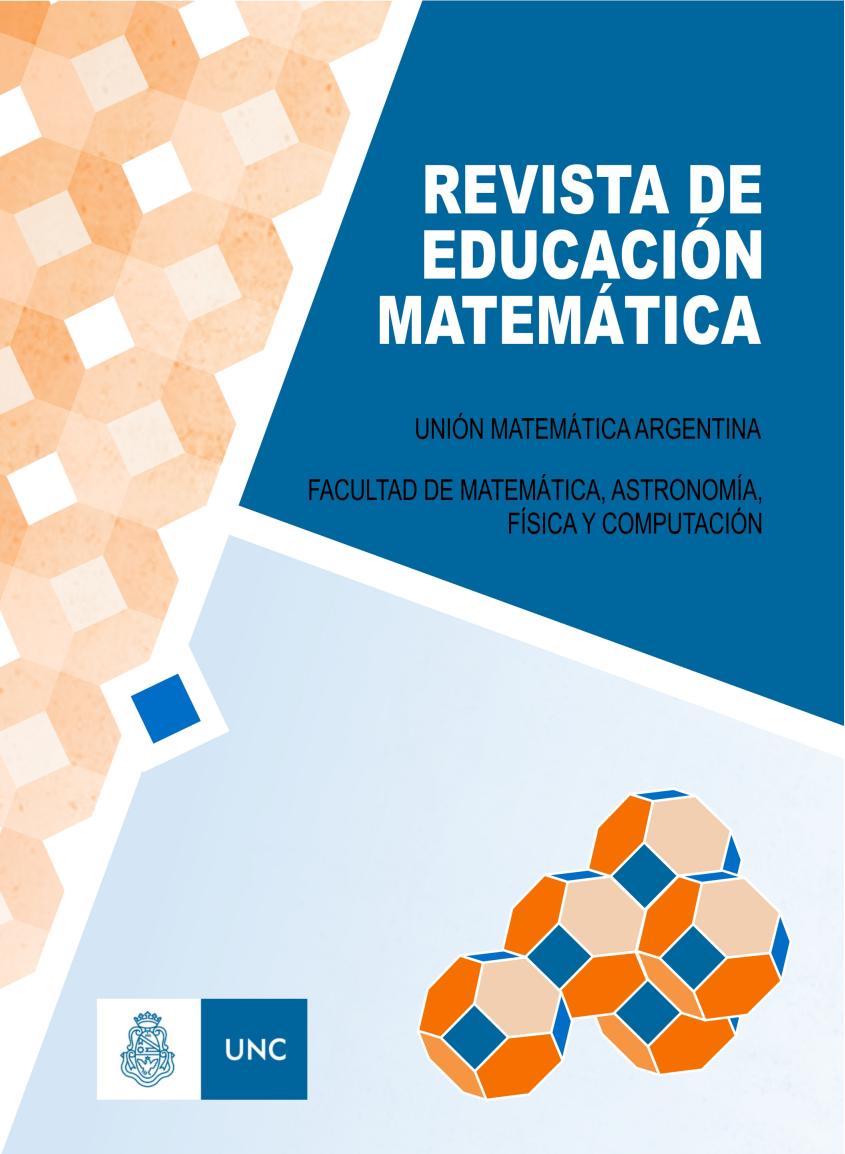PERSPECTIVAS MATEMÁTICAS Y PEDAGÓGICAS DE LA JUSTIFICACIÓN: APROXIMANDO LA RAÍZ DE 18
DOI:
https://doi.org/10.33044/revem.26933Palabras clave:
Justificación matemática, validez matemática, perspectivas interactuantes.Resumen
“La raíz cuadrada de 18 está más cerca de 4 que de 5, porque 18 está más cerca de 16 que de 25”. ¿Será válida esta afirmación, escuchada en una clase de un octavo grado? Proponemos argumentos hipotéticos sobre los cuales esta afirmación estaría basada y los analizamos desde dos perspectivas complementarias – epistémica y pedagógica – apoyándonos en la noción de Toulmin sobre dependencia de campo en la argumentación y en la clasificación de Freeman de la justificación basada en el tipo de intuición, creencia o comprensión subyacentes. Proponemos que nuestro análisis de esta proposición puede ser un modelo de investigación en cursos de formación docente.
Descargas
Referencias
Borasi, R. (1996). Reconceiving Mathematics Instruction: a Focus on Errors. Norwood, NJ: Praeger.
Chazan, D., & Herbst, P. (2012). Animations of classroom interaction: expanding the boundaries of video records of practice. Teachers College Record, 114(3), 1-34.
Freeman, J. B. (2005). Systematizing Toulmin’s warrants: an epistemic approach. Argumentation, 19(3), 331-346.
Markovits, Z., Eylon, B., & Bruckheimer, M. (1983). Functions: linearity unconstrained. In R. Hershkowitz (Ed.), Proceedings of the 7th Conference of the International Group for the Psychology of Mathematics Education (p. 271-277). Israel: Rehovot.
Nardi, E., Biza, I., & Zachariades, T. (2012). ‘Warrant’ revisited: integrating mathematics teachers’ pedagogical and epistemological considerations into Toulmin’s model for argumentation. Educational Studies in Mathematics, 79(2), 157-173.
Sfard, A. (2008). Thinking as Communicating: Human Development, the Growth of Discourses, and Mathematizing. Cambridge, UK: Cambridge University Press.
Toulmin, S. E. (1958). The Uses of Argument. Cambridge, UK: Cambridge University Press.
Von Glasersfeld, E. (1993). Questions and answers about radical constructivism. In K. G. Tobin (Ed.), The Practice of Constructivism in Science Education (p. 23-38). Hillsdale, NJ: Lawrence Erlbaum Associates, Inc.
Descargas
Publicado
Número
Sección
Licencia
Derechos de autor 2019 Jason Cooper, Alon Pinto

Esta obra está bajo una licencia internacional Creative Commons Atribución-CompartirIgual 4.0.
Aquellos autores/as que tengan publicaciones con esta revista, aceptan los términos siguientes:
- Los autores/as conservarán sus derechos de autor y garantizarán a la revista el derecho de primera publicación de su obra, el cuál estará simultáneamente sujeto a la Atribución-CompartirIgual 4.0 Internacional (CC BY-SA 4.0), que permite:
- Compartir — copiar y redistribuir el material en cualquier medio o formato
- Adaptar — remezclar, transformar y construir a partir del material
- La licenciante no puede revocar estas libertades en tanto usted siga los términos de la licencia
- Los autores/as podrán adoptar otros acuerdos de licencia no exclusiva de distribución de la versión de la obra publicada (p. ej.: depositarla en un archivo telemático institucional o publicarla en un volumen monográfico) siempre que se indique la publicación inicial en esta revista.
- Se permite y recomienda a los autores/as difundir su obra a través de Internet (p. ej.: en archivos telemáticos institucionales o en su página web) después del proceso de publicación, lo cual puede producir intercambios interesantes y aumentar las citas de la obra publicada. (Véase El efecto del acceso abierto).









